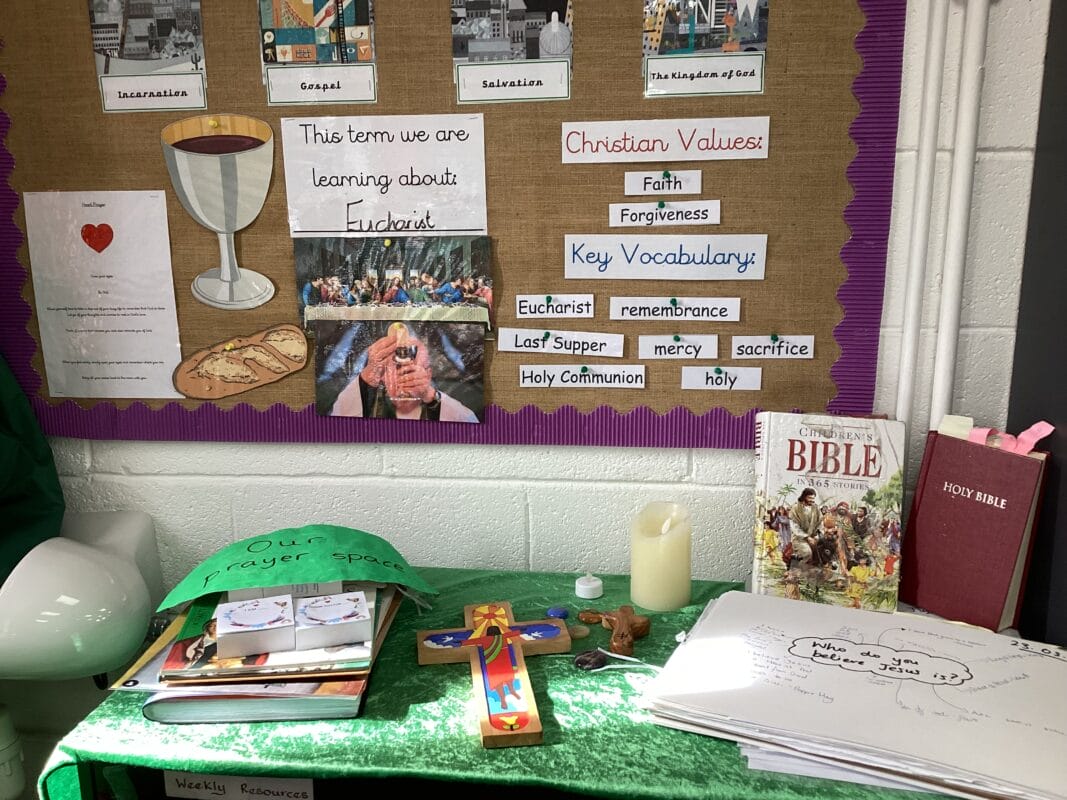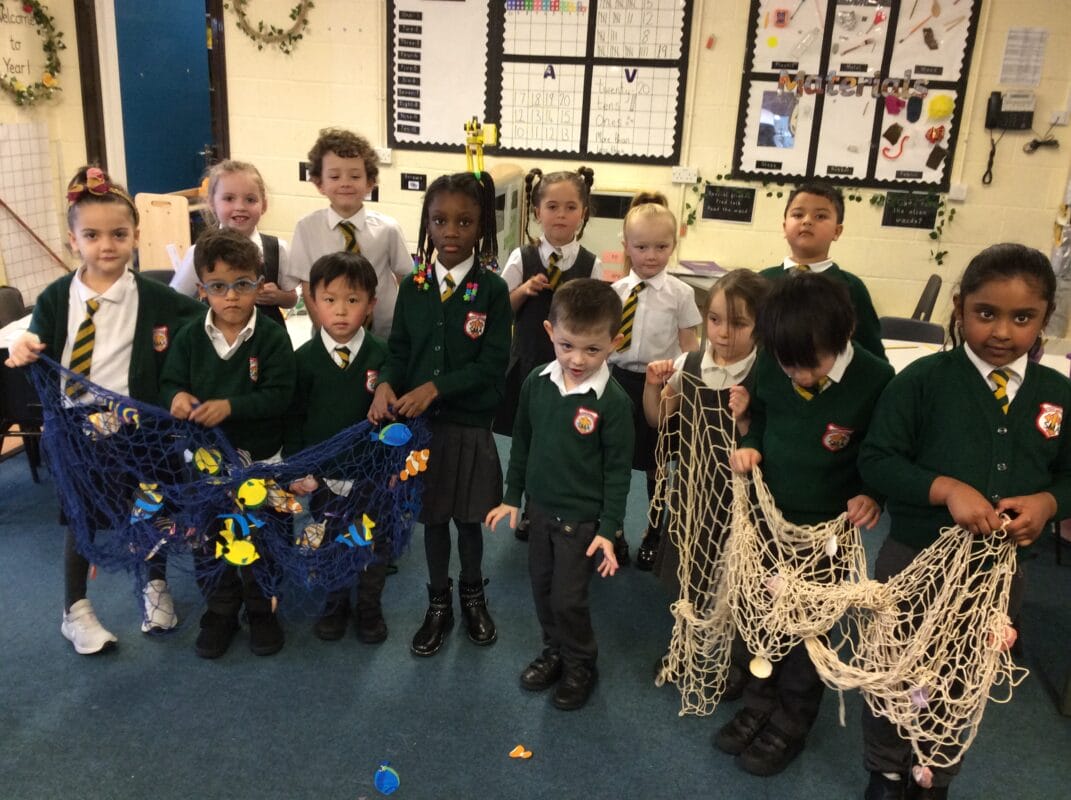R.E.
Intent
At St. Margaret’s Anfield Primary, we believe that it is important for all our pupils to learn from and about religion, so that they can understand the world around them. The aim of Religious Education in our school is to help children to acquire and develop knowledge and understanding of Christianity and other world faiths to appreciate the way that religious beliefs shape life and behaviour, develop the ability to make reasoned and informed judgements about religious and moral issues and enhance their spiritual, moral, social and cultural development and so prepare them for the next stage of their learning journey.
We aim to help children to:
- know and understand Christianity as a diverse global living faith through the exploration of core beliefs using an approach that critically engages with biblical text.
- enable pupils to encounter Christianity as the religion that shapes British culture and heritage and influences the lives of millions of people today.
- contribute to pupils’ own spiritual/ philosophical convictions, exploring and enriching their own faith and belief.
- enable pupils to learn about the other principal religions of Britain, their influence on cultural heritage and on the lives of their adherents.
.


Implementation
At St. Margaret’s Anfield CE Primary School, the governors, in consultation with the Headteacher, have adopted the Blackburn Diocesan Board of Education ‘Questful RE’ syllabus. In accordance with the structure of the Diocesan Syllabus for Voluntary Controlled schools, Christianity accounts for 60% of curriculum time across the school with the remaining 40% curriculum spent learning about other world faiths.
In studying the religious faiths of the world, and with a real focus on Christianity, The Bible and stories from the Old and New Testaments, the children embark on a quest to learn how religion influences and shapes the world we live in today through the text-impact-connection approach.
Religious Education, a core subject within our Christian school, is delivered weekly in all classes by the class teacher. We adopt an enquiry-based approach to immerse pupils in stories of faith and lessons for living – which enable informed conversations and reflection to take place about religious beliefs and practices. Active learning techniques are important in many aspects of this subject: artwork, role-play, music, poetry and technology are used in teaching and learning.
The life of the school is developed around an explicit commitment to Christian values and ethos. The delivery and experience of Religious Education could therefore be deemed at the core of our Christian values: truth, fairness, justice and Joy.
Impact
Religious Education is an opportunity for children to develop their own personal beliefs and make reference to them. Through their learning, the children are able to make links between their own lives and those of others in their community and in the wider world, developing an understanding of other people’s cultures and ways of life.
Religious Education at St. Margaret’s Anfield CE Primary School enables children to:
- Give a theologically informed and thoughtful account of Christianity as a living and diverse faith.
- Show an informed and respectful attitude to religions and world views in their search for God and meaning.
- Engage in meaningful and informed dialogue with those of all faiths and none.
- Reflect critically and responsibly on their own spiritual, philosophical and ethical convictions.
Pupils demonstrate both our Christian values and also their knowledge of religious studies in many ways. Religious Education plays an important role, along with all other curriculum areas, in promoting social awareness and understanding in our children. We encourage our pupils to ask questions about the world and to reflect on their own beliefs, values and experiences. We include and promote British values, ensuring that children are aware of their rights and responsibilities as UK citizens and encourage our children to be courageous advocates by “being the change they want to see”. Responses to world events, current affairs, fundraising and how we engage within our school community are rooted in the foundations of Religious Education.


